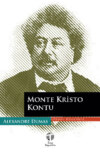Kitabı oku: «The Regent's Daughter», sayfa 14
CHAPTER XXVIII.
A COMPANION IN THE BASTILLE
Thus occupied, Gaston was more uneasy than ennuyé; besides, he found another source of amusement. Mademoiselle de Launay, who obtained whatever she liked from the lieutenant, Maison-Rouge, provided her request were only accompanied by a sweet smile, obtained paper and pens; she had sent some to Dumesnil, who had shared them with Gaston, with whom he still communicated, and with Richelieu, with whom also he managed to correspond. Then Gaston formed the idea of making some verses to Helene.
On his part, the Chevalier Dumesnil made some for Mademoiselle de Launay, who made them in return for him, so that the Bastille was a true Parnassus. There was only Richelieu who dishonored the society by writing prose.
Time passed, as it will pass, even in the Bastille.
Gaston was asked if he would like to attend mass, and as he was deeply religious, he had assented most gladly. The next day they came to fetch him.
The mass was celebrated in a little church, having, instead of chapels, separate closets, with bulls-eye windows into the choir, so that they could only see the officiating priest at the moment of elevation, and he could not see the prisoners at all.
Gaston saw M. de Laval and the Duc de Richelieu, who had apparently come to mass for the purpose of talking, for they knelt side by side, and kept up an incessant whispering. Monsieur de Laval appeared to have some important news to communicate, and kept looking at Gaston as though he were interested in it. As neither spoke to him, however, except in the way of mere salutation, he asked no questions.
When the mass was over, the prisoners were taken back. As they crossed a dark corridor, Gaston passed a man who seemed to be an employé of the house. This man sought Gaston's hand, and slipped a paper into it, which he put quietly into his waistcoat pocket.
When he was alone in his own room he eagerly took it out. It was written on sugar paper, with the point of a sharpened coal, and contained this line – "Feign illness from ennui."
It seemed to Gaston that the writing was not unknown to him, but it was so roughly traced that it was difficult to recognize. He waited for the evening impatiently, that he might consult with the Chevalier Dumesnil.
At night Gaston told him what had passed, asking him, as he had a longer acquaintance with the Bastille, what he thought of the advice of his unknown correspondent.
"Ma foi, though I do not understand the advice, I should follow it, for it cannot hurt you; the worse that can happen is, that they may give you less to eat."
"But," said Gaston, "suppose they discover the illness to be feigned."
"Oh! as to that," replied Dumesnil, "the doctor is entirely ignorant, and will give you whatever you may ask for; perhaps they will let you walk in the garden, and that would be a great amusement."
Gaston consulted Mademoiselle de Launay, whose advice, by logic or sympathy, was the same as that of the chevalier; but she added,
"If they diet you, let me know, and I will send you chicken, sweets, and Bordeaux."
Pompadour did not reply; the hole was not yet pierced.
Gaston then played the sick man, did not eat what they sent him, relying on his neighbor's liberality. At the end of the second day M. de Launay appeared – he had been told that Gaston was eating nothing, and he found the prisoner in bed.
"Monsieur," he said, "I fear you are suffering, and have come to see you."
"You are too good, monsieur," said Gaston; "it is true that I am suffering."
"What is the matter?"
"Ma foi, monsieur, I do not know that there is any amour propre here; I am ennuyé in this place."
"What, in four or five days?"
"From the first hour."
"What kind of ennui do you feel?"
"Are there several?"
"Certainly – one pines for his family."
"I have none."
"For his mistress."
Gaston sighed.
"For one's country."
"Yes," said Gaston, "it is that," seeing that he must say something.
The governor appeared to reflect.
"Monsieur," said he, "since I have been governor of the Bastille, my only agreeable moments have been those in which I have been of service to the gentlemen confided to my care by the king. I am ready to do anything for you if you will promise to be reasonable."
"I promise you, monsieur."
"I can put you in communication with one of your compatriots, or at least with a man who seems to know Bretagne perfectly."
"Is he a prisoner?"
"Like yourself."
A vague sentiment passed through Gaston's mind that it must be this man who had slipped the note into his hand. "I should be very grateful if you would do this," said he.
"Well, to-morrow you shall see him; but as I am recommended to be strict with him, you can only remain with him an hour, and as he may not quit his chamber, you must go to him."
"As you please, monsieur," said Gaston.
"Then it is decided; at five o'clock expect me or the major; but it is on one condition."
"What is it?"
"That in consideration of this distraction you will eat a little to-day."
"I will try."
Gaston eat a little chicken and drank a little wine to keep his promise.
In the evening he told Dumesnil what had passed.
"Ma foi," said he, "you are lucky; the Count de Laval had the same idea, and all he got was to be put into a room in the tower Du Tresor, where he said he was dreadfully dull, and had no amusement but speaking to the prison apothecary."
"Diable!" said Gaston, "why did you not tell me that before?"
"I had forgotten it."
This tardy recollection troubled Gaston somewhat; placed as he was between Pompadour, Dumesnil, and Mademoiselle de Launay, his position was tolerable; if he were to be removed, he would be really attacked by the malady he had feigned.
At the appointed time the major of the Bastille came, and led Gaston across several courts, and they stopped at the tower Du Tresor. Every tower had its separate name.
In the room number one was a prisoner asleep on a folding bed, with his back turned to the light; the remains of his dinner were by him on a worn-out wooden table, and his costume, torn in many places, indicated a man of low station.
"Ouais," said Gaston, "did they think that I was so fond of Bretagne, that any fellows who happened to have been born at Nismes or at Penmarch may be raised to the rank of my Pylades? No, this fellow is too ragged, and seems to eat too much; but as one must not be too capricious in prison, let us make use of the hour – I will recount my adventure to Mademoiselle de Launay, and she will put it into verse for the Chevalier Dumesnil."
Gaston was now alone with the prisoner, who yawned and turned in his bed.
"Ugh! how cold it is in this cursed Bastille," said he, rubbing his nose.
"That voice, that gesture – it is he!" said Gaston, and he approached the bed.
"What," cried the prisoner, sitting up in bed, and looking at Gaston, "you here, M. de Chanlay?"
"Captain la Jonquiere," cried Gaston.
"Myself – that is to say, I am the person you name; but my name is changed."
"To what?" – "First Tresor."
"What?"
"First Tresor. It is a custom in the Bastille for the prisoner to take the name of his room – that saves the turnkey the trouble of remembering names; however, if the Bastille be full, and two or three prisoners in the same room, they take two numbers; for example: I am first Tresor, if you were put here you would be first Tresor number two; another would be first Tresor number three – the jailers have a kind of Latin literature for this."
"Yes, I understand," said Gaston, watching La Jonquiere intently; "then you are a prisoner?"
"Parbleu, you see for yourself; I presume we are neither of us here for pleasure."
"Then we are discovered."
"I am afraid so."
"Thanks to you."
"How to me?" cried La Jonquiere, feigning surprise. "No jokes, I beg."
"You have made revelations, traitor!"
"I! come, come, young man, you are mad; you ought not to be in the Bastille, but in the Petites Maisons."
"Do not deny it, M. d'Argenson told me!"
"D'Argenson; pardieu, the authority is good; and do you know what he told me?"
"No."
"That you had denounced me."
"Monsieur!"
"Well; what then? Are we to cut each other's throats because the police has followed out its trade and lied?"
"But how could he discover?"
"I ask the same of you. But one thing is certain; if I had told anything, I should not be here. You have not seen much of me, but you ought to know that I should not be fool enough to give information gratis; revelations are bought and sold, monsieur, and I know that Dubois pays high for them."
"Perhaps you are right," said Gaston; "but at least let us bless the chance which brings us together."
"Certainly."
"You do not appear enchanted, nevertheless."
"I am only moderately so, I confess."
"Captain!"
"Ah, monsieur, how bad-tempered you are."
"I?"
"Yes; you are always getting angry. I like my solitude; that does not speak."
"Monsieur!"
"Again. Now listen. Do you believe, as you say, that chance has brought us together?"
"What should it be?"
"Some combination of our jailers – of D'Argenson's, or perhaps Dubois's."
"Did you not write to me?"
"I?"
"Telling me to feign illness from ennui."
"And how should I have written? – on what? – by whom?"
Gaston reflected; and this time it was La Jonquiere who watched him.
"Then," said the captain presently, "I think, on the contrary, that it is to you we owe the pleasure of meeting in the Bastille."
"To me, monsieur?"
"Yes, chevalier; you are too confiding. I give you that information in case you leave here; but more particularly in case you remain here."
"Thank you."
"Have you noticed if you were followed?"
"No."
"A conspirator should never look before, but always behind him."
Gaston confessed that he had not taken this precaution.
"And the duke," asked La Jonquiere, "is he arrested?"
"I know not; I was going to ask you."
"Peste! that is disagreeable. You took a young woman to him?"
"You know that."
"Ah! my dear fellow, everything becomes known. Did not she give the information? Ah! woman, woman!"
"This was a brave girl, monsieur; I would answer for her discretion, courage, and devotion."
"Yes, I understand. We love her – so she is honey and gold. What an idea of a conspiracy you must have to take a woman to the chief of the plot!"
"But I told her nothing; and she could know no secrets of mine but such as she may have surprised."
"She has a keen eye."
"And if she knew my projects, I am convinced she would never have spoken."
"Oh, monsieur, without counting her natural disposition to that exercise, can we not always make a woman speak? Some one might have said, without any preparation 'Your love for M. de Chanlay will lose your head' – I will wager that she will speak."
"There is no danger – she loves me too much."
"That is the very reason, pardieu! that she would chatter like a magpie, and that we are both caged up. However, let us drop this. What do you do here?"
"Amuse myself."
"Amuse yourself – how?"
"With making verses, eating sweets, and making holes in the floor."
"Holes in the king's boards?" said La Jonquiere. "Oh, oh! that is good to know. Does not M. de Launay scold?"
"He does not know it; besides, I am not singular – everybody makes a hole in something; one his floor, the other his chimney, the next his wall. Do you not make holes in something?"
La Jonquiere looked to see if Gaston were not laughing at him.
"But now, monsieur," said La Jonquiere, "let us speak seriously. Are you condemned to death?"
"I?"
"Yes, you."
"You say that coolly."
"It is a habit in the Bastille. There are twenty here condemned to death, and not a bit the worse for it."
"I have been interrogated."
"Ah! you see."
"But I do not believe I am condemned."
"That will come."
"My dear captain, do you know that, although you do not look so, you are marvelously merry?"
"You think so?"
"Yes."
"Does it astonish you?"
"I did not know you were so brave."
"Then you would regret life?"
"I confess it; I only want one thing to make me happy, and that is to live."
"And you became a conspirator with a chance of happiness before you? I do not understand you; I thought people conspired from despair, as they marry when they have no other resource."
"When I joined the conspiracy I did not love."
"And afterward?"
"I would not draw back."
"Bravo! that is what I call character. Have you been tortured?"
"No; but I had a narrow escape."
"Then you will be."
"Why so?"
"Because I have been; and it would be unfair to treat us differently. Look at the state of my clothes."
"Which did they give you?" asked Gaston, shuddering at the recollection of what had passed between D'Argenson and himself.
"The water. They made me drink a barrel and a half; my stomach was like a bladder; I did not think I could have held so much."
"And did you suffer much?" asked Gaston, with interest.
"Yes; but my temperament is robust – the next day I thought no more of it. It is true that since then I have drunk a great deal of wine. If you have to choose, select the water – it cleans. All the mixtures doctors give us are only a means of making us swallow water. Fangon says the best doctor he ever heard of was Doctor Sangrado; he only existed in Le Sage's brain, or he would have done miracles."
"You know Fangon?" asked Gaston, surprised.
"By reputation; besides, I have read his works. But do you intend to persist in saying nothing?"
"Doubtless."
"You are right. I should tell you, if you regret life so much as you say, to whisper a few words to M. d'Argenson, but he is a talker who would reveal your confession."
"I will not speak, be assured; these are points on which I do not need strengthening."
"I believe it; pardieu! you seem to me like Sardanapalus in your tower. Here I have only M. de Laval, who takes medicine three times a day – it is an amusement he has invented. Well, tastes differ; and perhaps he wants to get accustomed to the water."
"But did you not say I should certainly be condemned?"
"Do you wish to know the whole truth?"
"Yes."
"Well, D'Argenson told me that you were."
Gaston turned pale, in spite of his courage. La Jonquiere remarked it.
"However," said he, "I believe you might save yourself by certain revelations."
"Why, do you think I should do what you refused?"
"Our characters and our positions are different – I am no longer young – I am not in love – I do not leave a mistress in tears." Gaston sighed.
"You see there is a great difference between us; when did you ever hear me sigh like that?"
"Ah! if I die, his excellency will take care of Helene."
"And if he be arrested?"
"You are right."
"Then – "
"God will protect her."
"Decidedly you are young," said La Jonquiere.
"Explain."
"Suppose his excellency be not arrested?"
"Well."
"What age is he?"
"Forty-five or six, I suppose."
"And if he fell in love with Helene; is not that her name?"
"The duke fall in love with her! he to whose protection I confided her! it would be infamous!"
"The world is full of infamy; that is how it gets on."
"Oh, I will not dwell on such a thought."
"I do not tell you to dwell on it; I only suggested it for you to make what use you liked of."
"Hush," said Gaston, "some one is coming."
"Have you asked for anything?"
"No."
"Then the time allowed for your visit is out," and La Jonquiere threw himself quickly on his bed.
The bolts creaked, the door opened, and the governor appeared.
"Well, monsieur," said he to Gaston; "does your companion suit you?"
"Yes, particularly as I know Captain la Jonquiere."
"That makes my task more delicate; but, however, I made you an offer, and I will not draw back. I will permit one visit daily, at any hour you please: shall it be morning or evening?"
Gaston looked at La Jonquiere.
"Say five in the evening," said La Jonquiere, quickly.
"In the evening at five o'clock, if you please."
"The same as to-day, then?"
"Yes."
"It shall be as you desire, monsieur."
Gaston and La Jonquiere exchanged a glance, and the chevalier was taken back to his chamber.
CHAPTER XXIX.
THE SENTENCE
It was half-past six, and quite dark; the chevalier's first act on being left in his room was to run to the chimney.
"Chevalier," said he.
Dumesnil replied.
"I have paid my visit."
"Well?"
"I have found an acquaintance, if not a friend."
"A new prisoner."
"Of the same date as myself."
"His name?"
"Captain la Jonquiere."
"What?"
"Do you know him?"
"Yes!"
"Then do me a favor: what is he?"
"Oh, an enemy of the regent's."
"Are you sure?"
"Quite; he was in our conspiracy, and only withdrew because we preferred abduction to assassination."
"Then he was – ?"
"For assassination."
"That is it," murmured Gaston; "he is a man to be trusted."
"If it be the same I mean, he lives in the Rue Bourdonnais, at the Muids d'Amour."
"The same."
"Then he is a safe man."
"That is well," said Gaston, "for he holds the lives of four brave gentlemen in his hands."
"Of whom you are one."
"No, I put myself aside, for it seems all is over with me."
"How all is over?"
"Yes, I am condemned."
"To what?"
"To death."
There was a moment's silence.
"Impossible!" cried the Chevalier Dumesnil, at length.
"Why impossible?"
"Because, if I be not mistaken, your affair is attached to ours."
"It follows on it."
"Well?"
"Well."
"Our affairs prospering, yours cannot go wrong."
"And who says you are prospering?"
"Listen, for with you I will have no secrets."
"I am listening."
"Mademoiselle de Launay wrote me this yesterday. She was walking with Maison-Rouge, who, as you know, loves her, and at whom we both laugh, but who is useful to us. On pretext of illness, she asked, as you did, for a doctor; he told her that the prison doctor was at her orders. I must tell you that we have known this doctor intimately; his name is Herment.
"However, she did not hope to get much out of him, for he is a timid man; but when he entered the garden, where she was walking, and gave her a consultation in the open air, he said to her, 'Hope!' In the mouth of any one else this would have been nothing – in his it was a vast deal; since we are told to hope, you have nothing to fear, as our affairs are intimately connected."
"However," said Gaston, "La Jonquiere seemed sure of what he said."
At this moment Pompadour knocked.
Gaston went to the hole, which, with the aid of his knife, he soon made practicable.
"Ask the Chevalier Dumesnil if he does not know anything more from Mademoiselle de Launay."
"About what?"
"One of us; I overheard some words between the governor and the major at my door – they were, 'condemned to death.'" Gaston shuddered.
"Be easy, marquis; I believe they spoke of me."
"Diable! that would not make me easy at all; firstly, because we have quickly become friends, and I should be grieved if anything were to happen to you; and, secondly, because what happened to you might well happen to us, our affairs being so similar."
"And you believe that Mademoiselle de Launay could remove your doubts."
"Yes, her windows look on the arsenal."
"Well."
"She would have seen if there were anything new going on there to-day."
"Ah! she is striking now!"
At that moment Mademoiselle de Launay struck two blows, which meant attention.
Gaston replied by one, which meant that he was listening.
Then he went to the window.
A minute after the string appeared with a letter.
Gaston took the letter, and went to the hole to Pompadour.
"Well?" said the marquis.
"A letter," replied Gaston.
"What does she say?"
"I cannot see, but I will send it to Dumesnil, who will read it."
"Make haste."
"Pardon," said Gaston, "I am as anxious as you;" and he ran to the chimney.
"The string," he cried.
"You have a letter."
"Yes; have you a light?"
"Yes."
"Lower the string."
Gaston tied on the letter, which was drawn up.
"It is for you and not for me," said Dumesnil.
"Never mind, read it, and tell me what it is; I have no light, and it would lose time to send me one."
"You permit me?"
"Certainly."
A moment's silence.
"Well," said Gaston.
"Diable!"
"Bad news, is it not?"
"Judge for yourself."
And Dumesnil read:
"My dear Neighbor – Some judge extraordinary has arrived at the arsenal this evening. I recognized D'Argenson's livery. We shall know more soon, when I see the doctor. A thousand remembrances to Dumesnil."
"That is what La Jonquiere told me; it is I that am condemned."
"Bah, chevalier," said Dumesnil; "you are too easily alarmed."
"Not at all. I know well what to think, and then – hark!"
"What!"
"Silence; some one is coming." And Gaston went away from the chimney.
The door opened, and the major and lieutenant, with four soldiers, came for Gaston, who followed them.
"I am lost," murmured he. "Poor Helene."
And he raised his head with the intrepidity of a brave man, who, knowing death was near, went boldly to meet it.
"Monsieur," said D'Argenson, "your crime has been examined by the tribunal of which I am the president. In the preceding sittings you were permitted to defend yourself; if you were not granted advocates, it was not with the intention of inquiring your defense, but, on the contrary, because it was useless to give you the extreme indulgence of a tribunal charged to be severe."
"I do not understand you."
"Then I will be more explicit. Discussion would have made one thing evident, even in the eyes of your defenders – that you are a conspirator and an assassin. How could you suppose that with these points established indulgence would be shown you. But here you are before us, every facility will be given for your justification. If you ask a delay, you shall have it. If you wish researches, they shall be made. If you speak, you have the reply, and it will not be refused you."
"I understand, and thank the tribunal for this kindness," replied Gaston. "The excuse it gives me for the absence of a defender seems sufficient. I have not to defend myself."
"Then you do not wish for witnesses, delays, or documents?"
"I wish my sentence – that is all."
"Do not be obstinate, chevalier; make some confessions."
"I have none to make, for in all my interrogatories you have not made one precise accusation."
"And you wish – ?"
"Certainly – I should like to know of what I am accused."
"I will tell you. You came to Paris, appointed by the republican committee of Nantes, to assassinate the regent. You were referred to one La Jonquiere, your accomplice, now condemned with you."
Gaston felt that he turned pale at these true accusations. "This might be true, monsieur," said he, "but you could not know it. A man who wishes to commit such a deed does not confess it till it be accomplished."
"No; but his accomplices confess for him."
"That is to say, that La Jonquiere denounces me."
"I do not refer to La Jonquiere, but the others."
"The others!" cried Gaston; "are there, then, others arrested beside La Jonquiere and myself?"
"Yes. Messieurs de Pontcalec, de Talhouet, du Couëdic, and de Montlouis."
"I do not understand," said Gaston, with a vague feeling of terror – not for himself, but for his friends.
"What! do you not understand that Messieurs de Pontcalec, de Talhouet, du Couëdic, and de Montlouis are now being tried at Nantes?"
"Arrested!" cried Gaston, "impossible!"
"Yes," said D'Argenson, "you thought that the province would revolt rather than allow its defenders – as you rebels call yourselves – to be arrested. Well, the province has said nothing. The province has gone on singing, laughing, and dancing, and is already asking where they will be beheaded, in order to hire windows."
"I do not believe you, monsieur," said Gaston, coldly.
"Give me that portfolio," said D'Argenson to a man standing behind him. "Here, monsieur," continued he, "are the writs of arrest. Do you doubt their authenticity?"
"That does not say that they have accused me."
"They told all we wanted to know, and your culpability is the result."
"In that case, if they have told all you want to know, you have no need of my confession."
"Is that your final answer?"
"Yes."
"Officer, read the sentence."
The officer read —
"As the result of the investigation commenced on the 19th of February, that M. Gaston de Chanlay came from Nantes to Paris with the intention of committing the crime of murder on the person of his Royal Highness Monseigneur the Regent of France, which was to have been followed by a revolt against the authority of the king, the extraordinary commission instituted to inquire into this crime has adjudged the Chevalier Gaston de Chanlay worthy of the punishment for high treason, the person of the regent being as inviolable as that of the king. In consequence – We ordain that the Chevalier Gaston de Chanlay be degraded from all his titles and dignities; that he and his posterity be declared ignoble in perpetuity; that his goods be confiscated, his woods cut down to the height of six feet from the ground, and he himself beheaded on the Greve, or wheresoever it shall please the provost to appoint, saving his majesty's pardon."
Gaston was pale, but still as marble.
"And when am I to be executed?" asked he.
"As soon as it may please his majesty."
Gaston felt a cloud pass before his eyes, and his ideas became confused; but this soon vanished, and the serenity of his bearing returned, the blood rushed back to his cheeks, and a contemptuous smile settled on his lips.
"It is well, monsieur," said he; "at whatever moment his majesty's order may arrive, it will find me prepared; but I wish to know whether I may not see some persons who are very dear to me before I die, and I wish to ask a favor of the king."
D'Argenson's eyes glistened with malignant joy. "Monsieur," said he, "I told you that you would be treated with indulgence. You might therefore have spoken sooner, and perhaps his highness's kindness might not have waited for a prayer."
"You mistake me, monsieur," said Gaston, with dignity; "neither his majesty's honor nor mine will suffer from the favor which I shall ask."
"What would you ask?" said D'Argenson; "speak, and I will tell you at once if there be a chance of your request being granted."
"I ask, first, that my titles and dignities – which are not very great – should not be canceled, as I have no posterity. I am alone in the world; my name only survives me; but as that name is only noble, and not illustrious, it would not survive long."
"This is quite a royal favor, monsieur. His majesty alone can and will reply. Is that all you wish to ask?"
"No; I have another request to make, but I do not know to whom I should apply."
"First to me, monsieur, in my character of lieutenant of police. I shall see if I can grant it, or if I must refer it to his majesty."
"Well, then, monsieur, I desire to see Mademoiselle Helene de Chaverny, ward of his excellency the Duc d'Olivares, and also the duke himself."
D'Argenson, at this request, made a singular gesture, which Gaston interpreted as one of hesitation.
"Monsieur," said Gaston, "I would see them in any place, and for as short a time as may be thought advisable."
"You shall see them," said D'Argenson.
"Ah! monsieur," said Gaston, stepping forward as though to take his hand, "you lay me under the greatest obligation."
"On one condition, however, monsieur."
"What is it? there is no condition compatible with my honor that I will not accept in exchange for so great a favor."
"You must tell no one of your condemnation, and this on your word as a gentleman."
"I accede to that all the more willingly," said Gaston, "as one of the persons named would certainly die if she knew of it."
"Then all is well; have you anything further to say?"
"Nothing, monsieur, except to beg that you will record my denials."
"They are already firmly attached – officer, hand the papers to Monsieur de Chanlay, that he may read and sign them."
Gaston sat down by a table, and, while D'Argenson and the judges chatted around him, he carefully perused the papers and the report of his own answers to the interrogatory – then, finding all correct, he signed.
"Monsieur," said he, "here are the documents. Shall I have the pleasure of seeing you again?"
"I do not think so," said D'Argenson, with that brutality which was the terror of those who were subjected to him.
"Then to our meeting in another world, monsieur."
The major led Gaston to his own room.










